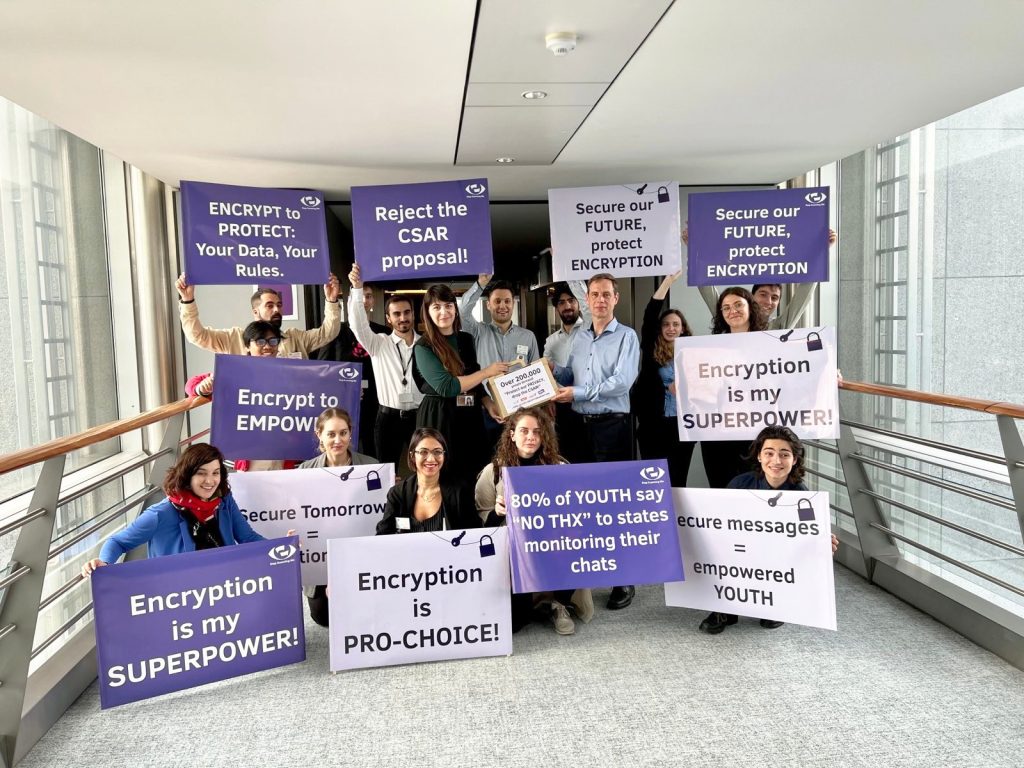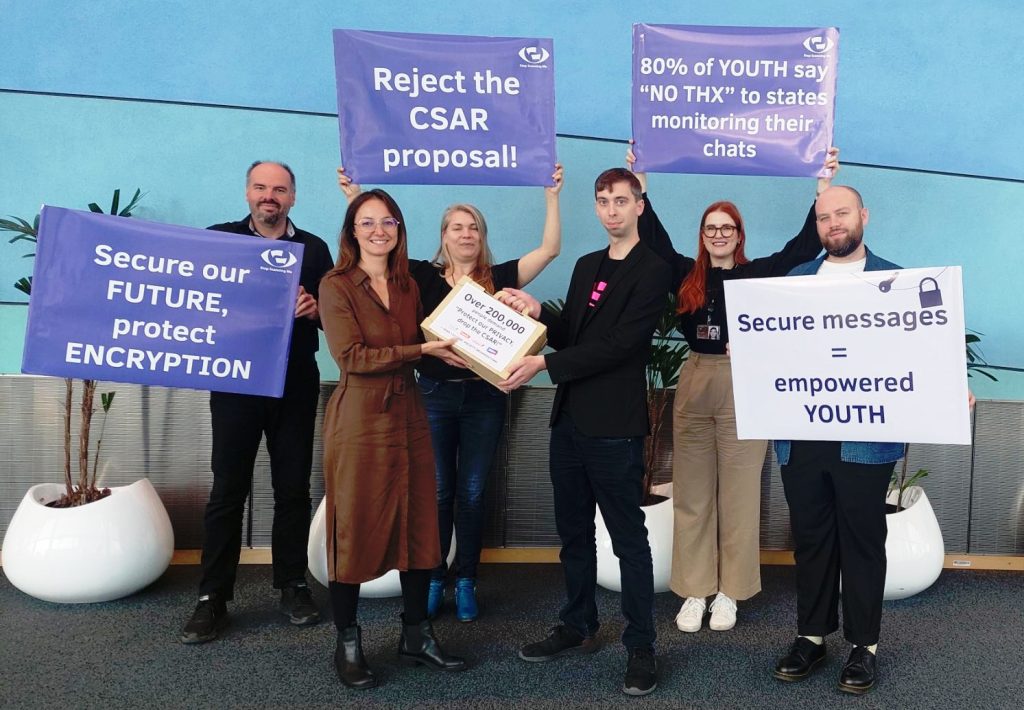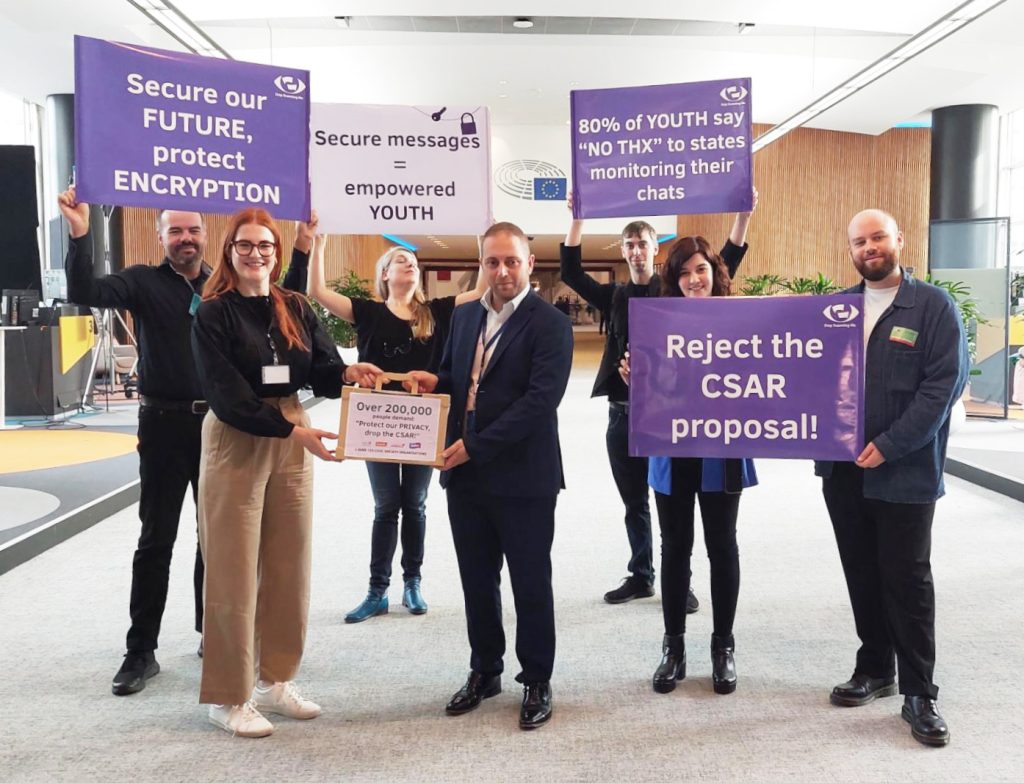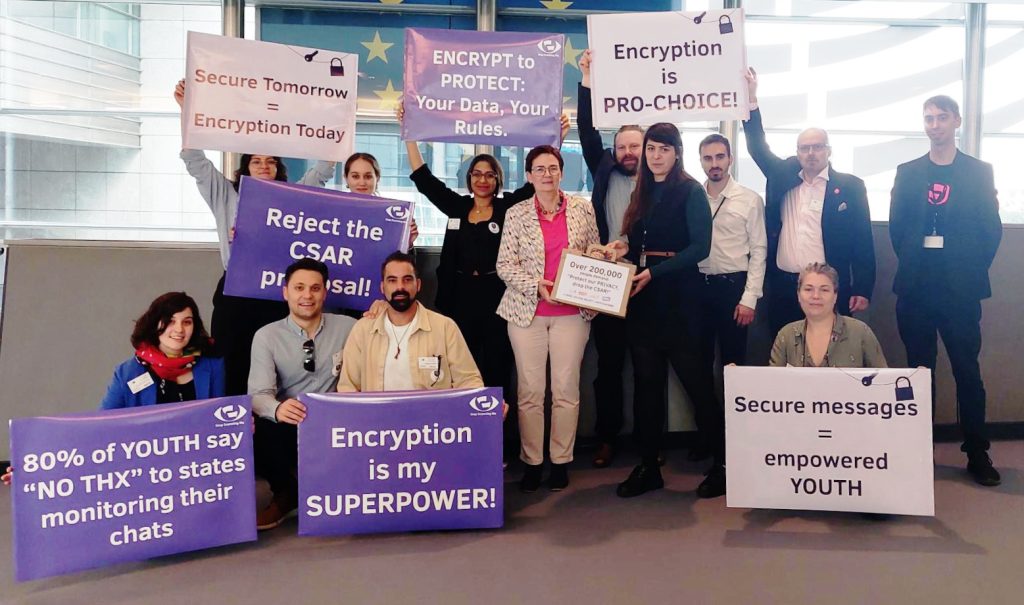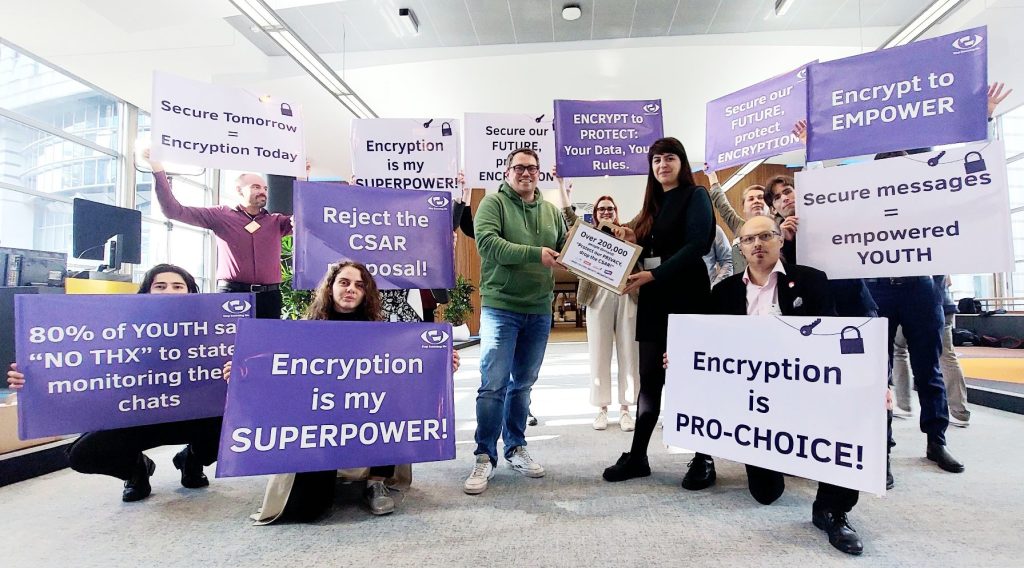Activists come to Brussels to tell MEPs to ensure everyone’s digital security amid mass surveillance measures in CSA Regulation
Between 9 and 11 October, 23 Stop Scanning Me activists from 13 European countries travelled to Brussels. They were students, parents, lawyers, young activists, human rights defenders and technologists. They came on behalf of the 200,000 people who signed the movement petition to tell their EU representatives in the European Parliament that the CSA Regulation proposal must be rejected to prevent mass surveillance.
As part of EDRi’s “Stop Scanning Me” campaign and our core mission to defend encryption and private, secure communication, we managed to support the travel of 23 volunteers from all over Europe in an action in the European Parliament. Over three days, the activists, coming from Greece, Italy, Czech Republic, Austria, Sweden, Finland, Norway, Portugal, Denmark, Romania, Germany, Spain and France had meetings with MEPs from all political groups. They talked about the CSA Regulation and the grave consequences the proposed measures would have on people’s life experiences.

“To be able to talk directly to the people elected feels empowering and like what we say matters. It means a lot to me to have the chance to talk to our elected politicians from my personal position on the CSA Regulation, as a parent, and discuss real examples of how this will affect me and my family.”
The discussions happened amidst a newly-published independent investigation by 7 leading news outlets. The news uncovered that parts of the European Commission have been promoting industry interests in its proposed law to regulate the spread of child sexual abuse material online. In addition to these revelations, it became clear that the Commission’s Home Affairs unit has reportedly used prohibited targeting of people based on their religious and political views, in an attempt to manipulate public and political opinion in the member states where governments opposed the law.
Given these highly concerning revelations and ahead of the European Parliament’s ‘civil liberties’ (LIBE) committee vote on the proposal, the need for public scrutiny is ever more important. That’s why EDRi helped people living in the EU in coming to Brussels to discuss their concerns about this law directly with their elected MEPs.
We met with several dozen MEPs
The EDRi colleagues in Brussels shared lessons on how the EU works, and the hot topics (and arguments) around encryption and mass surveillance technologies in the current CSA Regulation negotiations. As a result, activists managed to meet with several dozen MEPs. They spoke as students, parents, tech experts and researchers. All had one message: the tech “solutions” suggested in the law are impossible to develop as such technologies do not exist and will never do.

Many of the MEPs were alarmed at the risks as well as the issues with the legitimacy of the policy process. So, they committed to taking further steps to ensure that the CSA Regulation does not put people in the EU under mass surveillance.
We brought the voice of 200,000 people to the European Parliament
Along with the advocacy meetings that were held with MEPs, EDRi together with the 23 activists handled over the 200,000 signatures of people who have called on the MEPs to reject the CSA Regulation.
"It was a great experience. I got to feel both like I was doing something that mattered, making the world a bit better with my expertise in my field of choice and that my voice, as a citizen in a democracy, actually mattered."
The signatures were collected through several petitions coordinated by EDRi, Campact, Skiftet, and Aufstehen. The four organisations managed to bring all of these voices in the last year to show the EU-wide support for encryption and people’s concerns about their safety online amidst the proposed law.
The action that happened in Brussels last week builds from the wide spectrum of experts like academics, tech specialists, EU official bodies, police officers, child protection groups and survivors who have raised their concerns that this law would have a chilling effect on society and negatively affect democracies.
Some of the MEPs who accepted the signatures and voiced their support for encryption were Patrick Breyer (Pirate Party, Greens/EFA), Saskia Bricmont (Greens/EFA), Alex Agius Saliba (S&D), Birgit Sippel (S&D), and Tiemo Wolken (S&D).

